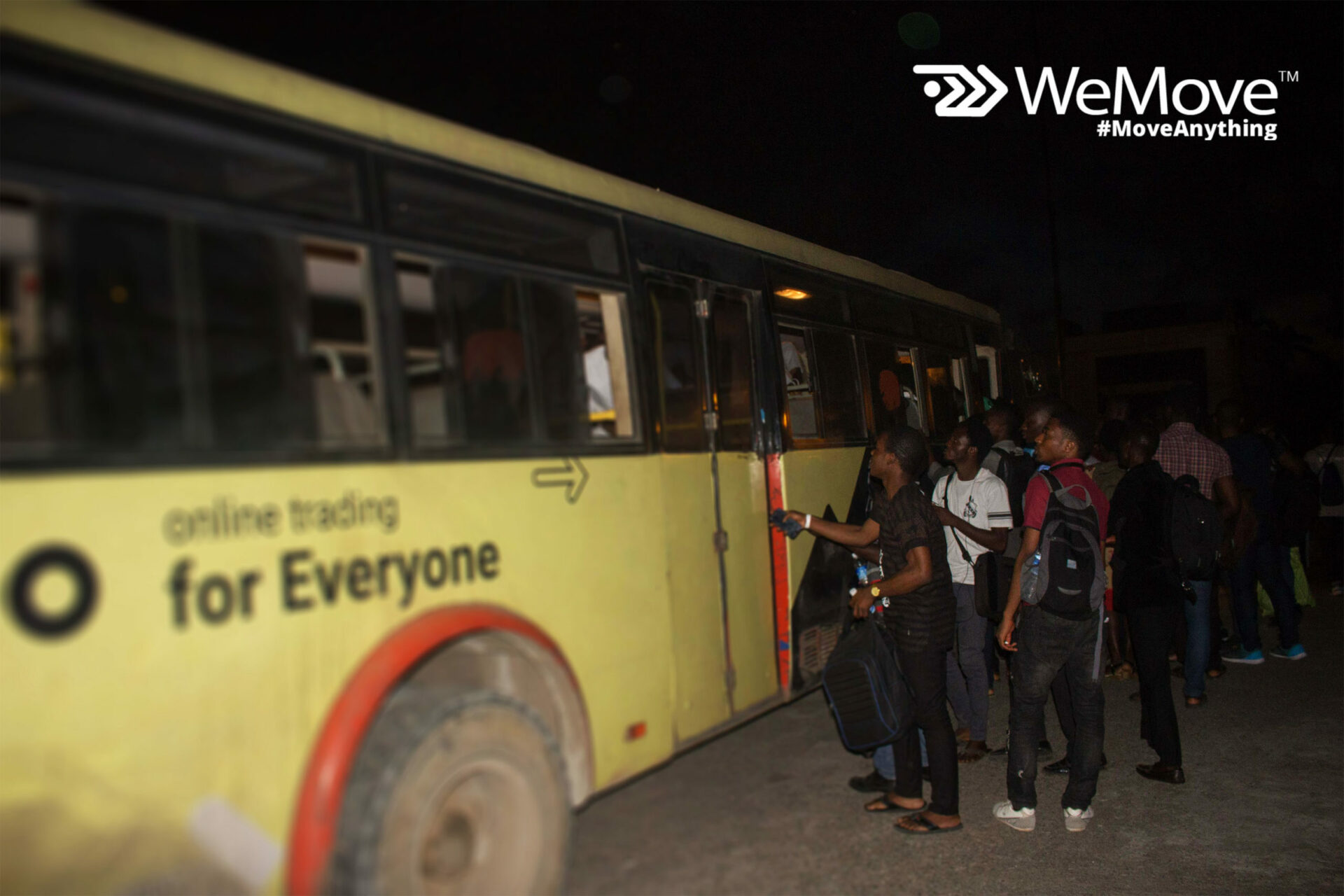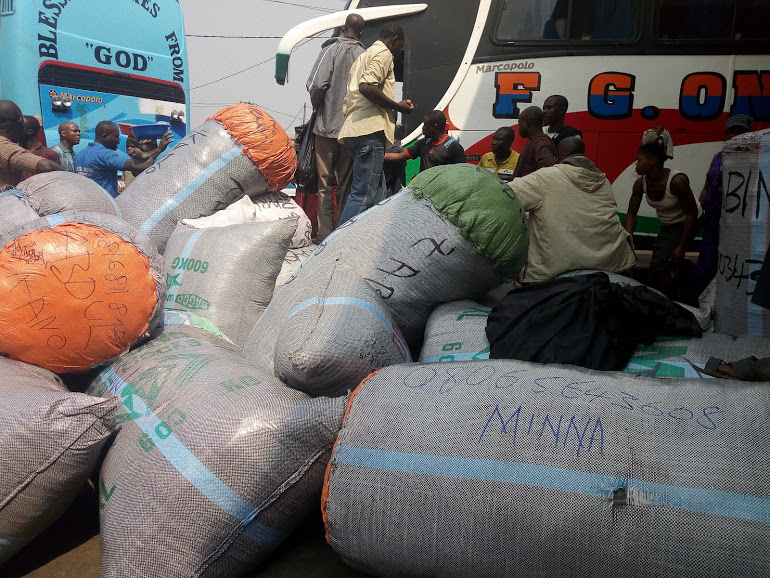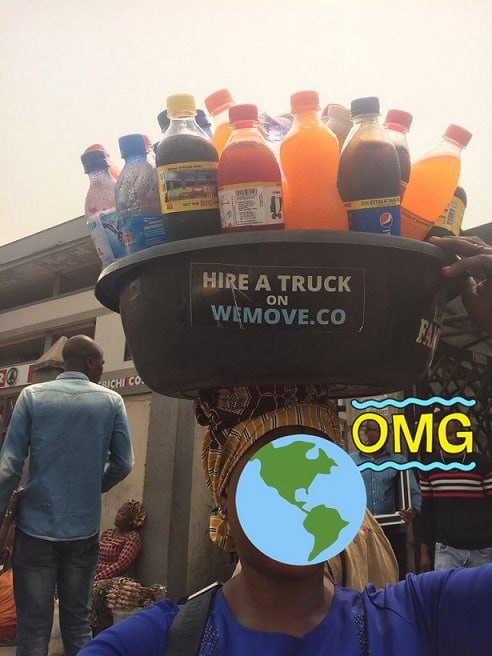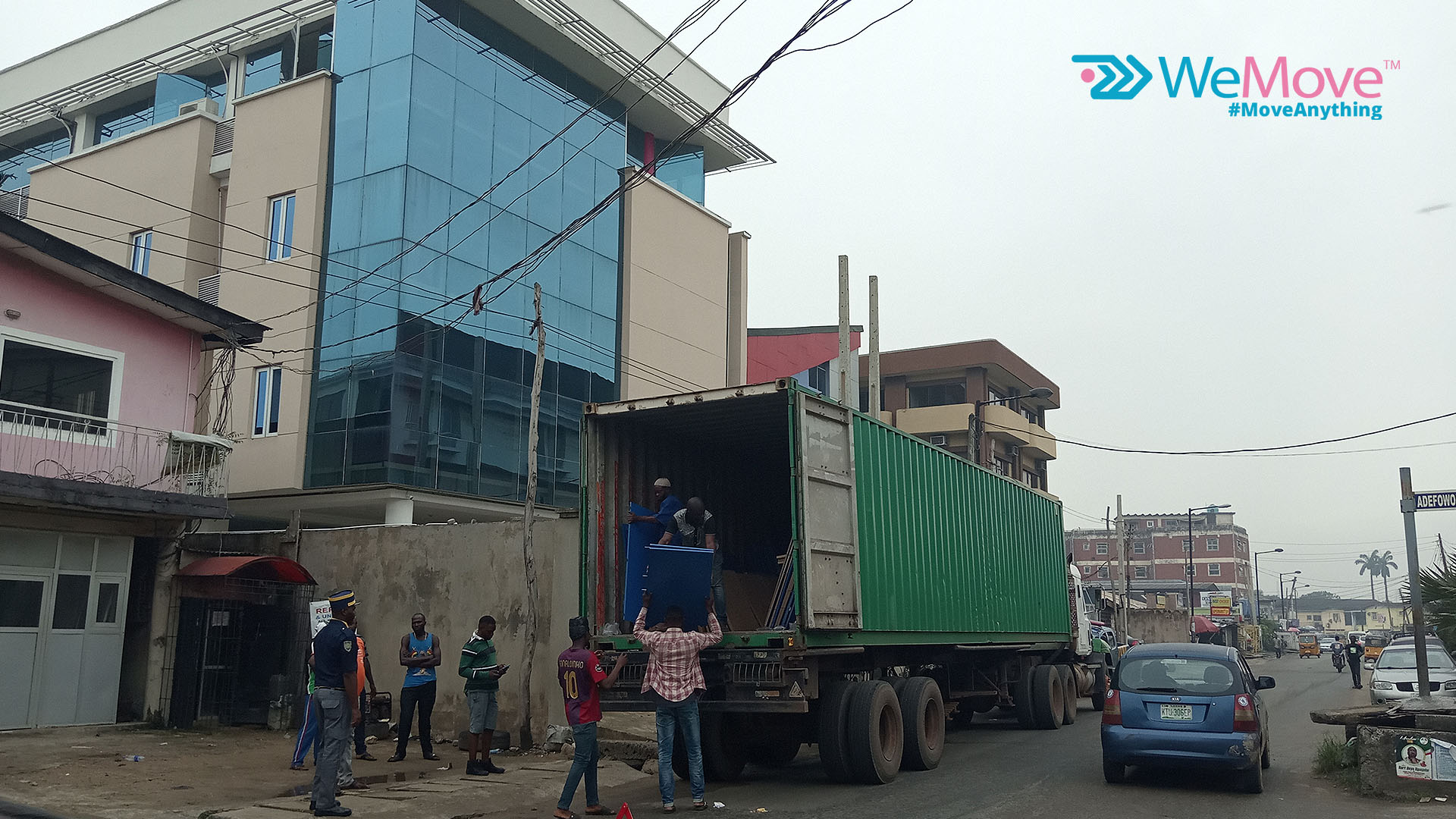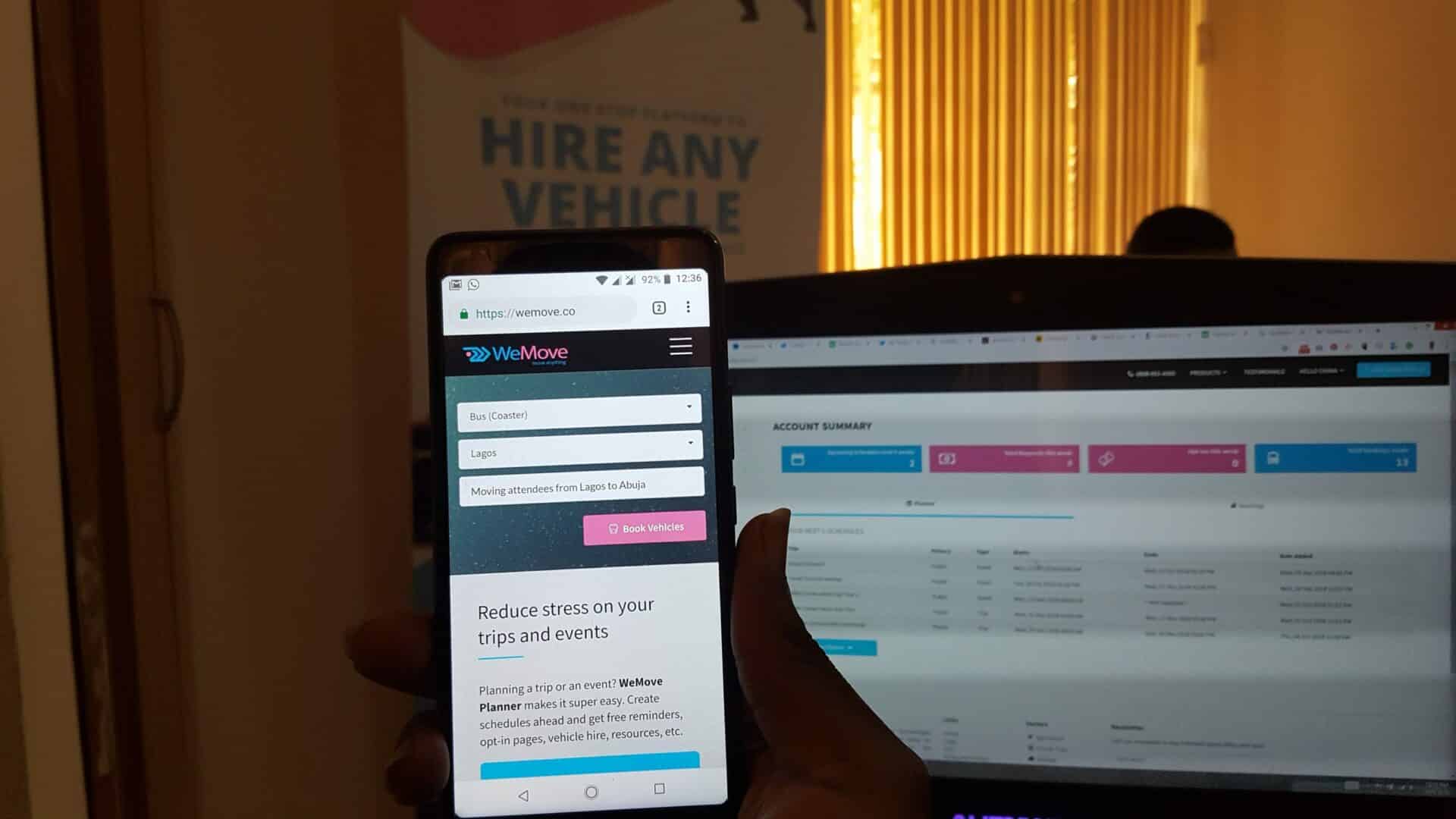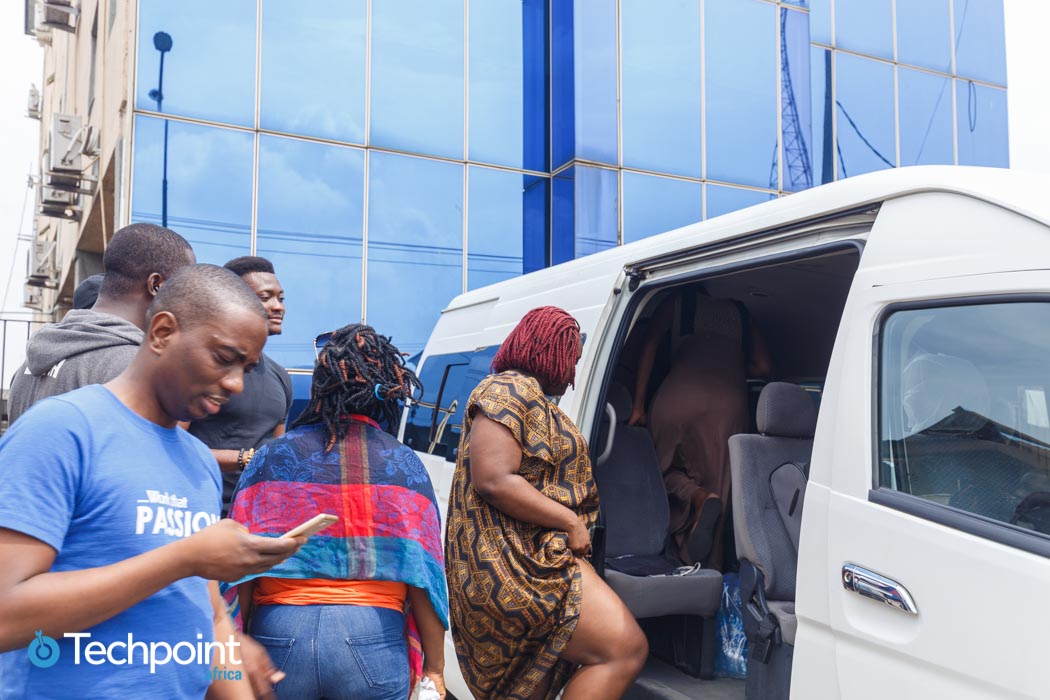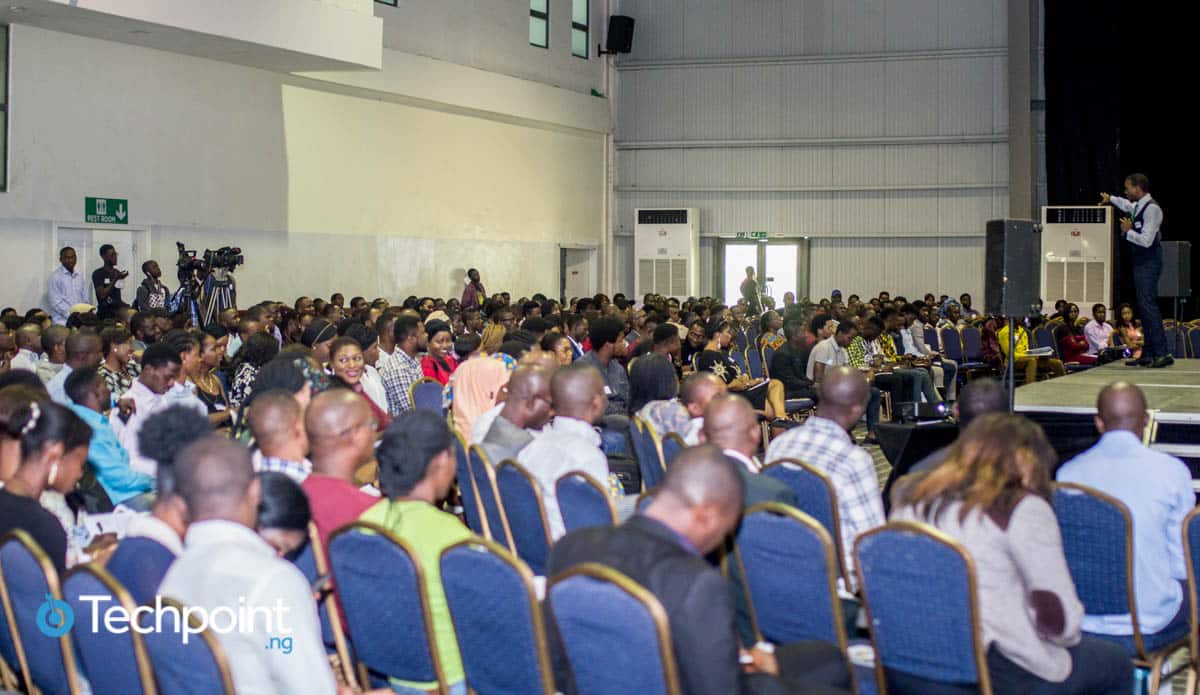Transportation is a basic need. Whatever happens, people will move or move goods. But beyond just moving people over short distances, there is more to transportation.
To understand the different components, we had a chat with Celestine Ezeokoye, CEO of WeMove who has a broader perspective on transportation as we know it and what the industry is like in Nigeria.
What’s your view on transportation?
Transportation is simply about moving people and goods. Movement of goods is what is referred to as haulage, and at WeMove we’re not just thinking about haulage, but all the aspects of transportation and the industries it affects by transportation.
You might be wondering what I mean when I say “industries”, considering that transportation is an industry on its own.
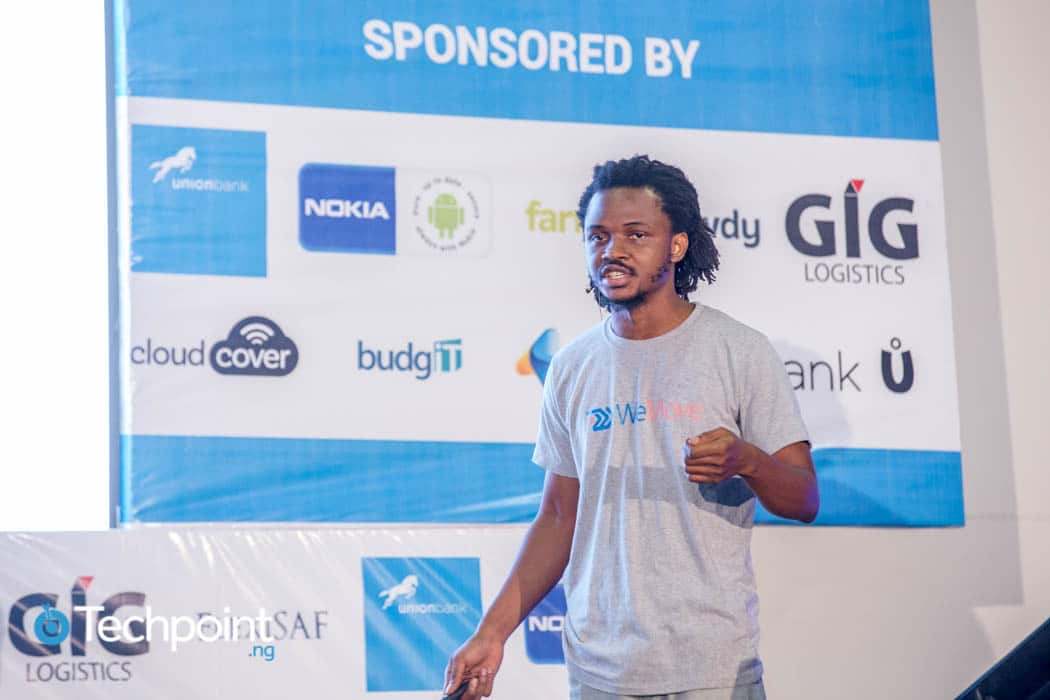
Being a basic need, transportation cuts across multiple use-cases and I like to refer to these use-cases as industries. These industries include the obvious ones like taxi services, haulage and delivery services, bus shuttles, etc.
There are also the not-so-obvious ones like travel and tours, wedding services, and agriculture. Common across all of these is the movement of people/goods. Anything can be moved, and this is why WeMove is in business. Unfortunately, despite the high mobile phone and Internet penetration rate — is 87% and 41.7% respectively — transportation services are still being accessed in a painfully manual way for the majority of the population. It’s crazy!
A lot of work is being done about it in major cities though. Thanks to the car, bus and bike-hailing services, people now have the option of getting a ride using their mobile phones. While these particular industries are being over-flogged, access to transportation in a lot of other industries are still manual.
A typical example is vehicle hire. One of our recent customers relocated from Lagos to Ibadan and needed to move his household appliances with him. There were several ways he could have done it if WeMove wasn’t in the picture.
But these alternatives involve going to a park to haggle over prices with drivers.
So many other transportation-driven industries still have pain points like this.
We haven’t even talked about the pains experienced by people accessing transportation in locations outside the major cities, which is a different story on its own. With pictures of this in mind, one clearly sees the opportunities that are in the transportation industry and, needless to say, the market is very large and sustainable.
However, for us, the ultimate goal is to make transportation services accessible to anyone in any location via mobile and Internet, across all industries.
What’s the market like in Nigeria and are there enough players?
Like I alluded to in my previous response, almost 90% of the population has access to mobile communication and more than 40% has access to the Internet.
The most recent user count data from Uber, the pioneering ride-hailing service, in August 2018 placed the number of Nigerian users at 267,000. That’s just about 3% of the estimated working population of Lagos which is estimated at 9 million.
Since August 2018, a lot of other transportation and logistics-related startups have launched and made it easier for people to access transportation. This is good, but they aren’t nearly enough because most of them are mainly focused on the trendiest use-cases: private hailing of vehicles and mostly within Lagos.
Now that the Lagos state government has placed a ban on Okada and (by extension Okada-hailing), chances are that many will be forced to locate their services in other states. But that is one industry out of many others.
The FMCG companies and small manufacturers with factories in Ota aren’t looking for Okadas to move products from their factory to their depots and retailers.
The farmer who cultivated tomatoes in the north isn’t trying to get an Okada to move them to Onitsha market. These aren’t just random use-cases, they are as a matter of fact requests that we have fulfilled at WeMove.
That aside, there’s also the data that assists in understanding the different market components and where the market is heading. For instance, what are the data of these different movements? How many times do people need a particular type of vehicle at a particular period of time and for what are the needs mainly? These are essential questions.
In my market, I’ve noticed that there are truck shortages. Meanwhile, the requests coming for them for one thing or another is huge.
I’ve often asked myself if there are reliable figures representing the need for trucks across the country and where they should be at any given time. Unfortunately, only the really large truckers seem to know, and they’re using it for the large FMCGs only.
Interestingly, the different industries we’re servicing have their own version of this question. Knowing how to address it effectively, in a way that helps improve efficiency, is also an important part of the market. But I’d say generally that there are not enough players across all the different parts of the transport industry.
Like many contemporary businesses, WeMove is leveraging the power of technology in the haulage sector. What difference does technology make?
With our vehicle hire business, the real advantage we’re bringing to the obscure vehicle owner is access. Our goal in leveraging tech is to build on platforms that lots of people are familiar with and I’ll explain this by describing how WeMove works.
When a booking request is made on wemove, a notification is sent to all the vehicle owners/partners on our database who own the vehicle type being requested. This notification comes in with a unique URL through which they are required to place a bid.
The best price from the highest-rated partner is then communicated to the user.
Ideally, to get this booking notification to vehicle owners, we wanted to go with something simple and convenient for us to build.
We could build a native app, but to the mobile phone users, that’s just yet another app to download in this age of app fatigue. So we chose to go with chatbots. WhatsApp was our platform of choice, but their platform APIs are still closed. The second choice was SMS, but the cost to the users for back and forth messaging isn’t negligible.
So we went with Telegram, which has an open API and only required Internet access.
We currently have over 350 registered partners, with more than 2000 vehicles. When they register, we put them in a Telegram group, where they all get the booking requests. Then the chatbot sends a private message with — the unique URL — to those who have the type of vehicle being requested so that they can place their bids.
Not all of our partners use the Telegram bidding effectively yet, but those who use it marvel that requests come in for their vehicles while they stay at home.
Another way we use technology is by helping transportation businesses properly manage their operations. We built a solution called WeMove Books, which helps transport businesses manage drivers, vehicles and repair, track fuelling, oversee accounts, etc. We’re still iterating this product with the market but businesses that have adopted it tell us that it helps them coordinate their transportation operations better and brings everything into a single interface.
What are the major challenges to scaling for businesses in this industry and how can they be overcome?
The biggest issue with scaling the system is that many people are stuck doing things the traditional way and innovation is hard to sell. So in order to bring people up to speed, a lot of intense education is needed.
Selling WeMove Books to traditional transportation businesses, with legacy processes built around keeping records using notebooks and MS Excel sheets, is really difficult. You either have to keep educating them or you put a staff in their business to help them use the solution properly. An alternative to educating the market is setting up and replicating their current process while introducing technology into the mix.
This is a much more expensive and less scalable means of achieving the results. Also, it mostly requires you to own physical assets. Some traditional bus companies have done this successfully, along with some of the bike-hailing startups.
But with this approach, they are stuck managing depreciating assets which they shouldn’t own as a technology (primarily) business. It’s really tough.
For us though, we’ve decided to scale by identifying industries that can plug into our core offering of vehicle hire, then build solutions to problems faced in such industries. One of such is travel and tours.
We discovered that it’s a nascent industry with distribution as its biggest challenge. We worked with them to figure out how we can help and this led us to build Rally so that tour planners can easily sell tours to individuals and corporate organisations.
Most tours that are distributed on Rally are executed using our vehicle hire service. The more tours are available on Rally, the more vehicles we hire. Win-Win.
You’re probably wondering if this isn’t yet another product/asset for us to manage. It is. However, from where we’re looking, it’s better for us to manage digital assets (which mainly appreciate in value with time) than physical assets (which depreciate with time).
Like travel and tours, we’ve identified and are observing a number of other industries awe can build solutions for in the near future. Another major problem is the government not properly articulating the right policies to help businesses, as laws and policies that hurt innovation are passed. But discussing this is a story for another day.
As someone who is building innovative solutions around transportation, what are the key lessons you have learnt over time?
Simple – the race is long and doesn’t automatically favour you just because you’re fast and trendy. Transportation is a basic and very traditional process, and the way it is being done now took a lot of time to evolve. To make technology work with transportation in a sustainable way, it’s important to put this into consideration.
Next is to figure out the different pieces of the puzzle that can be used to create more value and attract a broader audience.
Globally, there have been conversations around building mobility as a service (MaaS). However, some notable thinkers around innovation, like Efosa Ojomo, constantly criticise their model as unsustainable. Some have gone public, yet haven’t been able to figure out how to turn a profit.
They are now introducing other verticals (such as food delivery, etc) to their businesses as an afterthought and in order to find profit. They have the luxury to follow the trendy growth before profit order because of easy access to capital. For us in Nigeria and Africa, we need to think about profit from the get-go.
Unit economics needs to be positive before scaling. There’s no need to latch onto trends for the sake of it. Finally, don’t put your feet on the accelerator before you are sure that the road is clear.

